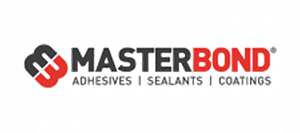
Master Bond EP21TPFL-1AO is an electrically insulative, two part epoxy polysulfide system with a thermal conductivity of 9-10 BTU•in/ft2•hr•°F [1.30-1.44 W/(m·K)]. As a polysulfide based system, it has very good chemical resistance, particularly to fuels, oils, hydraulic fluids and related compounds. This unusual blend of properties, enables EP21TPFL-1AO to be a candidate for a variety of bonding, sealing, coating and encapsulation applications in the electronic, aerospace, specialty OEM and related industries.
With an elongation of 150-200 percent, EP21TPFL-1AO offers a high degree of flexibility and it can withstand intense thermal cycling and mechanical shock. This low viscosity system also has a hardness of 70-90 Shore A. The mix ratio is a forgiving two to three by weight or volume. Color coding facilitates mixing. Part A is black and Part B is off-white. Working life is a conveniently long 90-120 minutes at 75°F.
EP21TPFL-1AO fully cures at ambient temperatures and should not be heated. It has very good adhesion to metals, ceramics, composites, glass, and many rubbers and plastics. This compound is serviceable over the wide temperature range of -60°F to +250°F and has a 6 month shelf life in original, unopened containers. EP21TPFL-1AO is available for use in ½ pint, pint, quart, gallon or 5 gallon container kits.
Contact Details
Related Glossary Terms
- ceramics
ceramics
Cutting tool materials based on aluminum oxide and silicon nitride. Ceramic tools can withstand higher cutting speeds than cemented carbide tools when machining hardened steels, cast irons and high-temperature alloys.
- composites
composites
Materials composed of different elements, with one element normally embedded in another, held together by a compatible binder.
- elongation
elongation
In tensile testing, the increase in the gage length, measured after fracture of the specimen within the gage length, usually expressed as a percentage of the original gage length.
- hardness
hardness
Hardness is a measure of the resistance of a material to surface indentation or abrasion. There is no absolute scale for hardness. In order to express hardness quantitatively, each type of test has its own scale, which defines hardness. Indentation hardness obtained through static methods is measured by Brinell, Rockwell, Vickers and Knoop tests. Hardness without indentation is measured by a dynamic method, known as the Scleroscope test.

